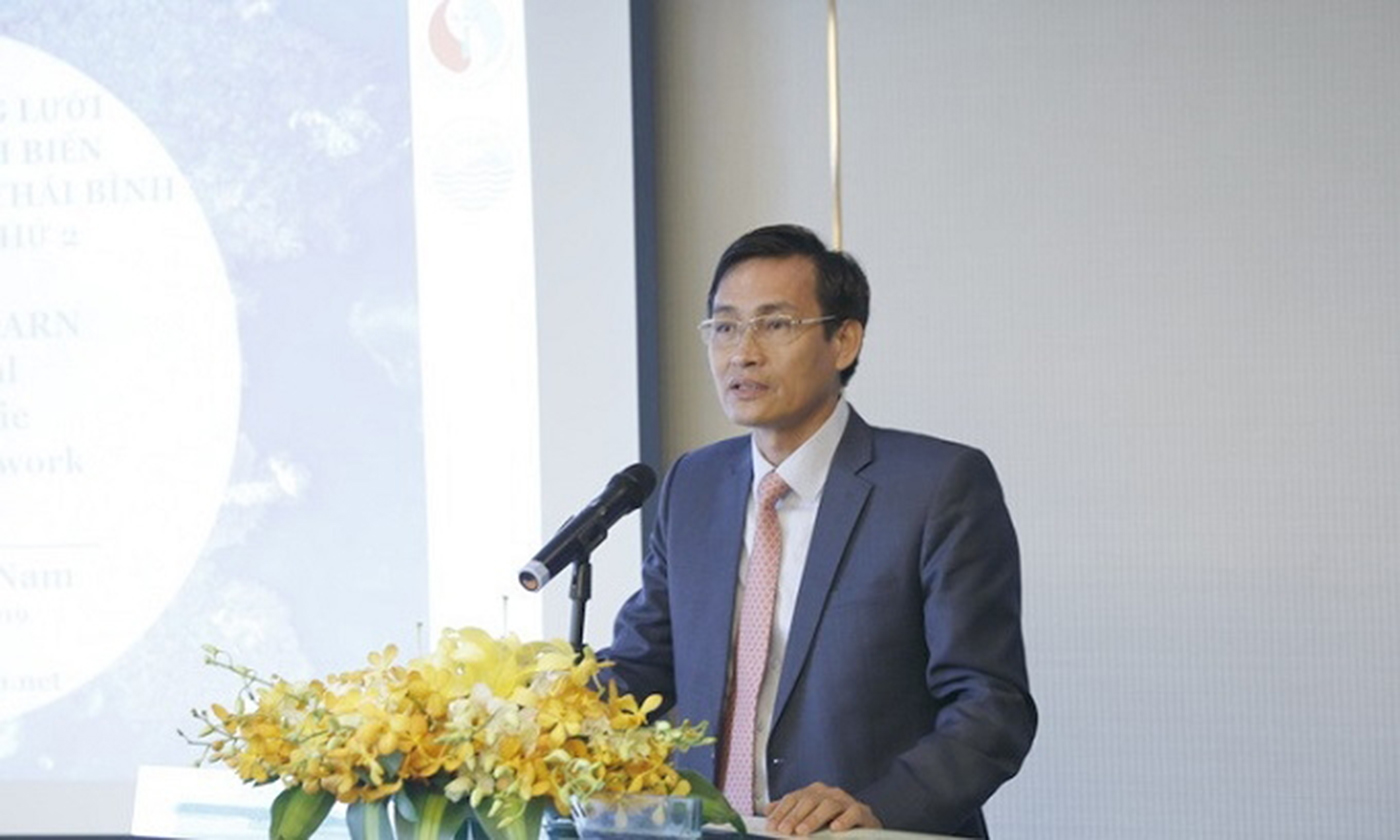Vietnam actively implements IOC's initiatives on marine spatial planning
ABO/NDO – As an active and responsible member of the Intergovernmental Oceanographic Commission of UNESCO (IOC), Vietnam has proactively implemented the IOC’s initiatives on marine spatial planning through many forms, such as organising the translation and dissemination of UNESCO’s documents and guidance, and participating in UNESCO-organised training and capacity building classes.
The statement was made by Deputy Minister of Natural Resources and Environment Tran Quy Kien at the second annual meeting of the IOC Sub-commission for the Asia-Pacific region in Hanoi on February 18.
 |
| Deputy Minister of Natural Resources and Environment Tran Quy Kien speaks at the meeting. (Photo: baotainguyenmoitruong.vn) |
The event was jointly held by the ministry, the Vietnam National Commission for UNESCO and the UNESCO Office in Hanoi, under the theme “Marine spatial planning and ocean governance”.
In his speech, Kien highly appreciated the agenda of the conference, with the experts discussing and sharing experience on many big, complicated, new and useful issues for Vietnam in deploying its sea and island management tasks.
As a coastal country with a long coastline and many islands, in recent years, Vietnam has actively implemented the management of the sea and islands by means of an integrated ecosystem-based approach. Vietnam has developed and implemented a system of policies and laws in service of the management work, notably the 2012 Vietnam Law of the Sea, the 2015 Law on Sea and Island Natural Resources and Environment, the 2014 Law on Environmental Protection, the 2017 Law on Planning, and most recently the Resolution No. 36-NQ/TW on the strategy of the sustainable development of the sea-based economy until 2030, vision to 2045, adopted by the 12th Party Central Committee at its eight plenum on October 22, 2018.
These are important and essential tools for integrated marine and island management in Vietnam, creating a basis for the successful implementation of Vietnam’s sustainable marine economic development strategy. In that context, it is extremely necessary to share and learn experience from countries around the world, especially countries in the Asia-Pacific region which share many similar sea and ocean conditions with Vietnam in marine spatial planning and ocean governance following an integrated ecosystem-based approach.
At the meeting, delegates focused on discussing issues concerning the enhancement of global governance over large marine ecosystems and coastlines through the application of information and knowledge sharing tools, as well as clarifying the content connotations, methods, approaches, and specific evaluation indicators on ocean governance and sharing experiences, international lessons, and especially initiatives and successful models in creating and implementing marine spatial planning, sustainable marine economic development and green growth models.
The second annual meeting of the IOC Sub-commission for the Asia-Pacific region will last until February 22.
(Source: NDO)
.
 về đầu trang
về đầu trang







